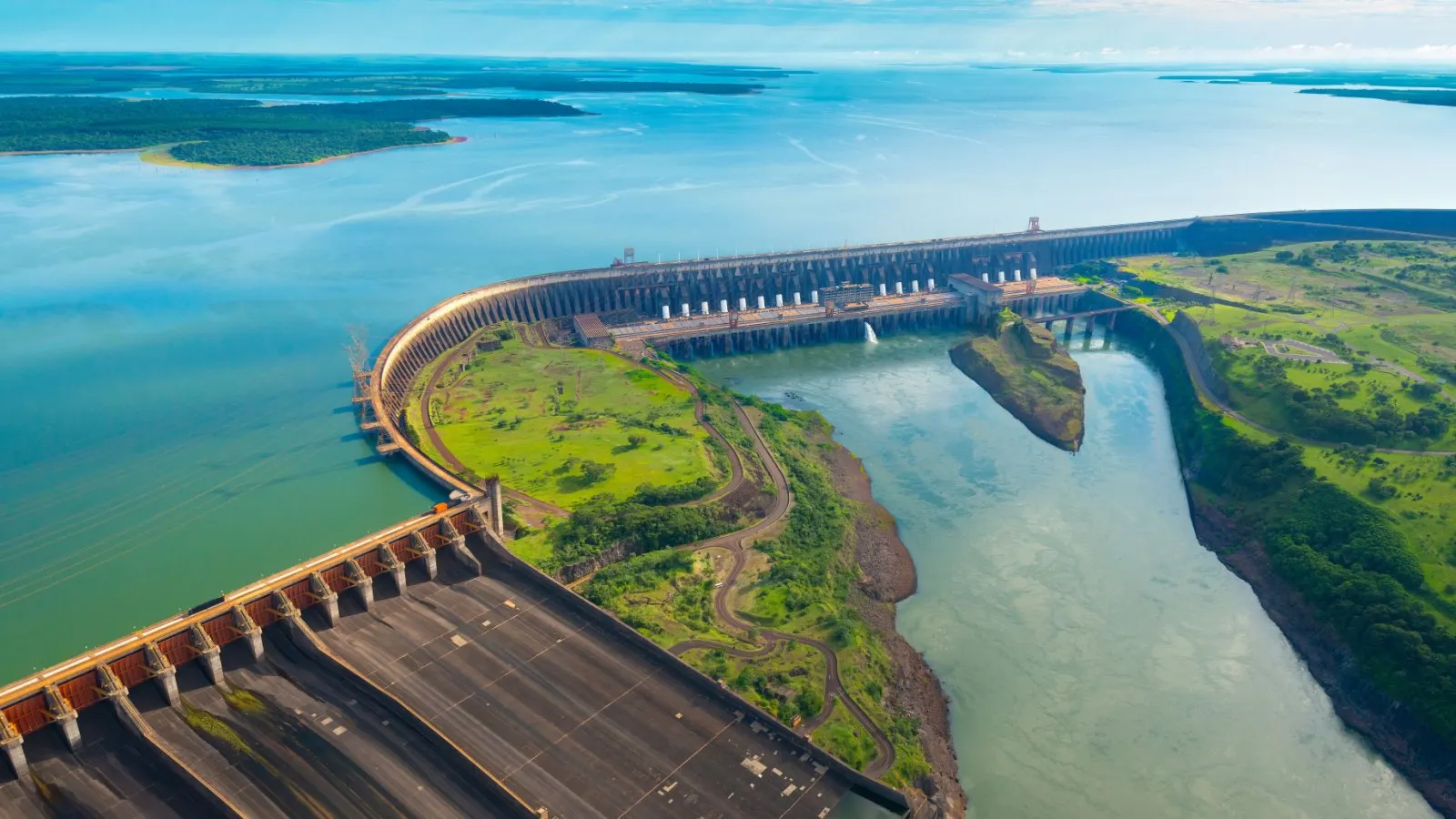Bitcoin mining company Sazmining has opened its newest 100% renewable energy facility in Paraguay.
The company operates customer-owned Bitcoin mining rigs on their behalf, taking a 15% commission for the service. Its new facility will get power from Itaipu Dam, the country’s largest hydroelectric dam. Located on the border of Paraguay and Brazil, the structure has earned itself the Guiness World Record for most expensive object on earth, costing a whopping $27 billion to build in 1984—or $35 billion if you adjust for inflation.
Sazmining President Kent Halliburton told Decrypt that due to Paraguay’s unique hydropower generating dynamics, it was selling 5 Gigawatts of power at a loss to its neighbor, Brazil. That’s why local authorities and communities embrace the company's presence, he said.
Tapping into Itaipu Dam and buying their surplus power instead of Paraguay exporting at a loss, “turns a headwind for Paraguay’s GDP into a tailwind,” said Halliburton.
Bitcoin mining is an integral piece to the network, but has a somewhat controversial relationship to energy markets. Specialized computers known as ASICs tap into different power generating sources and run the Bitcoin software in order to secure the protocol, earning BTC in return.
The above means that the cost of energy is an important consideration for Bitcoin mining companies. As per Sazmining, mining costs in their new facility will be $0.047 per-kilowatt hour in the new facility–a substantial difference between the world's leading Bitcoin mining country, the United States.
For the sake of comparison, the latest energy price report from the U.S. Bureau of Labor Statistics found that energy costs sit at $0.17 per-kilowatt hour—although that can vary widely depending on location and across industries.
Halliburton said Sazmining is able to get all of its power from the dam, meaning the new facility runs on 100% renewable energy.
Texas is often highlighted as one of Bitcoin’s strongest mining sectors, with sophisticated programs to help the grid in times of stress, but also make use of their excess power. For Halliburton, Paraguay is poised to become “the new Texas”—but he admits the grid there is still much less developed than the lone star state.
This offers an upside with a caveat, he told Decrypt. By agreeing to 95% power uptime instead of 100%, he said, the company was able to take advantage of lower rates. That said, Halliburton is confident the grid will continue to develop and import some of the programs currently present in Texas. For instance, miners in Texas are given energy credits in exchange for turning their rigs off during times of high demand.
Paraguay is a proverbial bit in the overall mining bucket, however. As of September 2021, the Cambridge Center for Alternative Finance (CCAF), placed Paraguay’s hash rate production at 0.15% of the entire Bitcoin mining network.
The Center has updated its index earlier this year, but did not immediately respond to a request from Decrypt about its map data.
Sazmining’s President likes this number, however.
“I see it as an opportunity for those of us that understand the dynamics in Paraguay,” he said, adding that they are positioning themselves ahead of the “seemingly inevitable rush of Bitcoin miners.”
Edited by Stacy Elliott.

